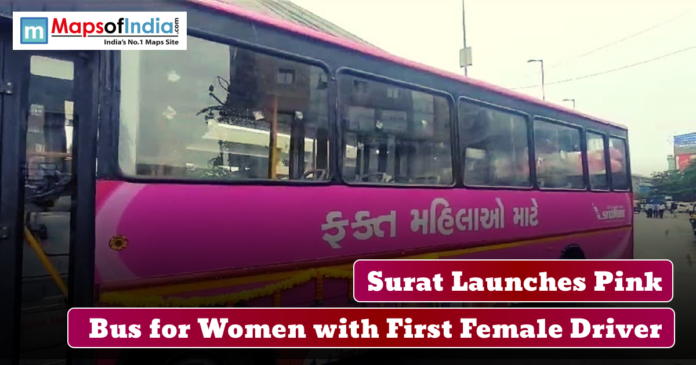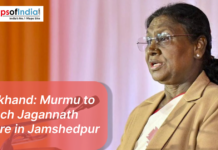The Surat Municipal Corporation has taken a historic step to ensure the safety, dignity and empowerment of women in the public transport by launching a special pink bus service that is meant specifically for women. The move itself shall be historic as it will be operated by a woman, and this will be the first time in Gujarat where a woman will be driving a city BRTS bus. The pink bus service was launched today, with its operation starting along the Sarathana Nature Park to ONGC route as a pilot programme.
The project will offer safer and more comfortable means of travelling to women, especially those who use such means on a daily basis to go to work, attend school and other vital services. The bus has a pink exterior that can be easily recognized, and its signages are female-focused, which makes the bus understandable to the passengers on the road. According to the officials of the municipal corporation, additional routes can be offered based on the success and the response of the commuters to the pilot run.
It is in the centre of this hugely popular launch that Nisha Sharma, the newly made history as the first woman BRTS driver in Gujarat, is involved. There was no quick decision on her choice. It was said that the corporation had been looking to hire a competent woman driver for almost 20 months, but it was difficult to find one who had a heavy commercial license and the right experience. Nisha, who has developed experience driving heavy vehicles over a period of more than four years, proved to be the right person and has become the face of the new initiative.
Nisha said she was proud and excited to take the appointment, and hopes that her position is something that will encourage more women to take a leap into a male-dominated profession. The fact that she is so confident behind the wheel has been a big boost among the city officials, the transport workers and even women passengers who most of whom indicated that the presence of a woman driver gives them additional reassurance of comfort and safety.
The move follows the general campaign in the Indian cities to ensure that women have greater access to public transport, which is safer and more accommodating. As an increasing number of women end up working and having to commute to and from the city, devoted transport services are increasingly being regarded as an important infrastructure, not a mere show.
With Surat in the process of building a network of BRTS, the authorities are of the view that the pink bus service would be significant in changing the way people look at it, helping women commuters and motivating more women to pursue a career in public transport. Succeeding, this initiative can soon be extended to other routes in the city- and perhaps even encourage other programmes in other regions of Gujarat and the nation.










